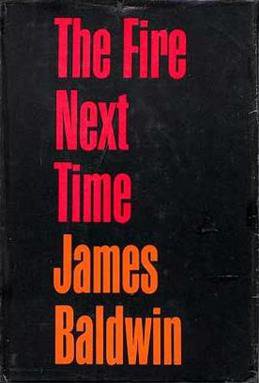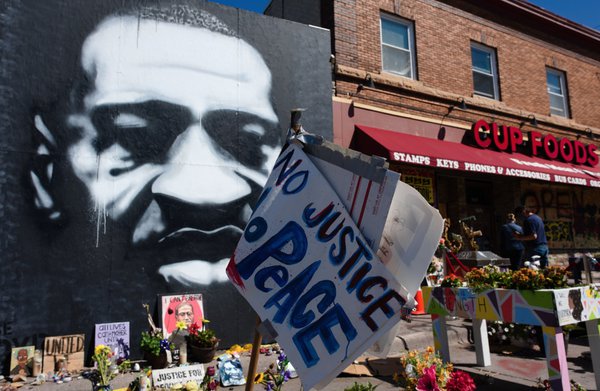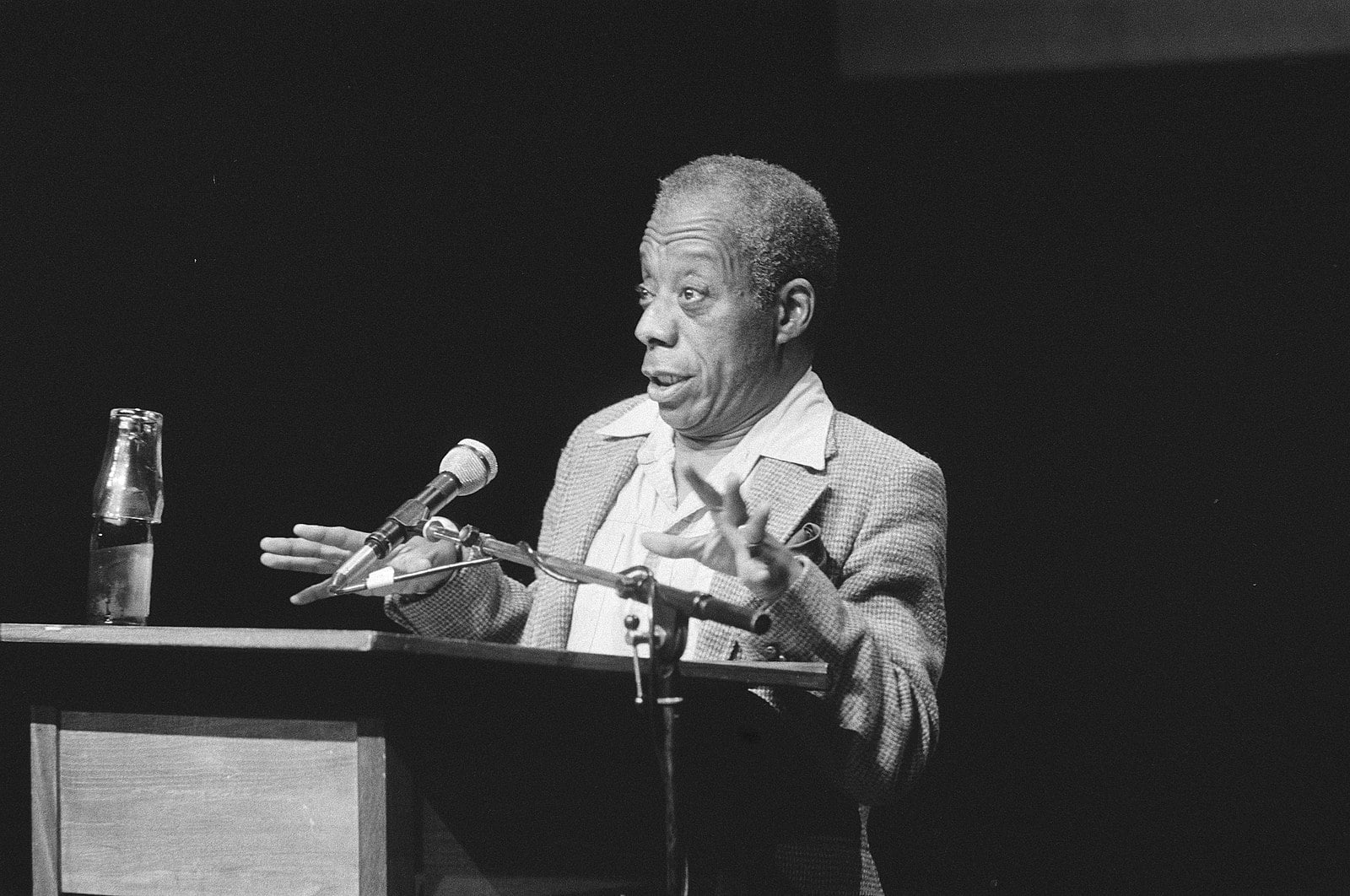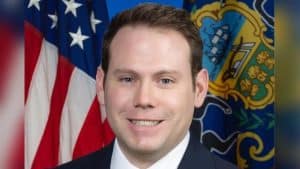This year marks the sixtieth anniversary of the publication of James Baldwin’s The Fire Next Time, a book whose measure of the conscience of its readers, even now, holds true. Some will keep its words close, while others will choose to warp and spurn them.
In Florida, for example, the Clay County school district saw fit to pull it from circulation, along with dozens of other books, pending the consideration of HB 1069–which was later signed into law by Governor Ron DeSantis–which allows for removing instructional material that depicts “sexual content.” Hundreds of challenges to the book, it turns out, were filed by a single resident who admitted that he didn’t always read the books he objected to.
For years, I’ve assigned The Fire Next Time in a course called “Introduction to Literature.” I’ve made my peace with the certainty that some students won’t read it, not because it might offend them but because, amid the rush of activity at term’s end, they simply decide not to. But as HB 1069 was snaking through the Florida Senate, I found myself more impassioned than usual in class, going off-script and urging my students not to sell their copies of it back to the bookstore.
“You won’t get much for it,” I said, raising the slim, Vintage International paperback edition above my head, as if Baldwin’s pensive face on the cover were assenting from on high.
I must have sounded desperate. Maybe I was. My hope was that an extra dollar or two wouldn’t make the difference between what I saw as two unambiguous futures for them—one where they looked for the book again and one where they never looked back.
The course enrolls first- and second-year students, most of whom take it as an elective and so probably won’t ever see me inside a classroom again. Our books are the only ones some will read cover-to-cover during their years in college. The Fire Next Time is the most demanding on the syllabus, despite being the shortest, barely able to be called a book of essays because there are only two of them.

The first essay, originally published in The Progressive in 1962, is written as a letter to Baldwin’s fifteen-year-old nephew. Its ten pages say enough about what we now call structural racism and white privilege to rouse even the laziest would-be censors to action. The second essay begins with the story of Baldwin rejecting his Harlem church and the fiction of security it promised, but it soon evolves into a full-throated rebuke of white Americans and their childish fantasies that he had outgrown. It’s a jeremiad to awe the Puritans and shame their latter-day imitators.
If The Fire Next Time (and the people teaching it) aim to indoctrinate, it might do well for us to know what, exactly, the doctrine is. It can’t be that white Americans are incorrigibly racist and that Black Americans have all the answers. Baldwin renounced his church because it excluded white people—Jews and gentiles alike—at the same time it cheated its own. And he was embarrassed to tell the Nation of Islam’s Elijah Muhammad—who believed in a holy Black nation—that he wished to be dropped off to meet some white friends for a drink.
The fallacy behind this latest war on books is that our first impression of a title should be our last. The power of first impressions is, unsurprisingly, the basic principle behind racism as well. And although The Fire Next Time calls for white Americans to examine their first impressions of Black Americans, it demands that they examine their first impressions of themselves too—before it is too late. “Therefore, whatever white people do not know about Negroes,” Baldwin writes, “reveals, precisely and inexorably, what they do not know about themselves.”
Commemorating the anniversary of The Fire Next Time risks missing the point, given that its title and last sentence appear to float an ultimatum whose deadline has long passed. But the book, if not history, will wait for us. It wants us to see ourselves in its words, not bully us into miming them. It can take time to fit Baldwin’s grand, circuitous language into the shape of our own lives, but it is the only way reading it will mean anything when we need it to.
Doctrines, on the other hand, are easy to read. Their message, learned by rote, doesn’t change. The word comes to you, strictly speaking, not the other way around. In class, a favorite student admitted that she had read The Fire Next Time and felt its importance, but now could not, for the life of her, explain it to anyone. I wanted her to hold onto the book because I thought that it could change for her, opening itself up anew over time.
Holding onto a book you didn’t understand and possibly didn’t like is, to me, an act of hope. The hope is that if the meaning changes for the better, it is because you have.
I remember having trouble with The Fire Next Time the first time I read it. I was in graduate school and several years older than my students are now. The words themselves were simple enough: Negro, Free, Love, Death. But I didn’t know why Baldwin claimed that “white Americans do not believe in death, and this is why the darkness of my skin so intimidates them.” Now I understand that he was saying that his Blackness required white Americans to face “reality—the fact that life is tragic.” To believe in death is to believe in life on these terms.
Too many white Americans choose to lie to themselves, Baldwin observed, abiding in myths of innocence because they have the resources to do so—money, or if not, the like-mindedness of their white friends and family. His body reminded them of the crimes of white supremacy that their consciences hadn’t, or wouldn’t, account for. Baldwin’s reality was life without the guarantee of safety for anyone. If the country were to avoid ruin, its people must adapt and want to change, in the sense of being renewed.
“But renewal becomes impossible,” he warns, “if one supposes things to be constant that are not—safety, for example, or money, or power.”
As a younger man, I dearly wanted to know this meaning, if only to prove it, and therefore myself, in front of my professor and classmates. I wasn’t prepared for its fullness. Part of the reason was that I had yet to figure out how a Chinese American like me mattered in such concerns. I was more interested in Asian American literature, which I had come to school to study, than Black Civil Rights-era writers like Baldwin, whose questions, unlike my own, I thought had been answered. I must not have believed in death either.
Although I was an immigrant like my mother and father, I was so by only a single year, and in all other respects began to split from their reality, which took nothing for granted, let alone safety, money, or power. What is immigration, after all, if not faith in a shot at renewal? Yet my parents spared me as much of their world as possible to try to keep me whole, a “proper” American like the kids I played with, my wants and hopes as constant as any white boy’s.
The suburbs kept us safe enough, in blunt terms, what you could count with numbers, but less so in other respects. “You can’t serve, as they say, two masters,” Baldwin tells a documentarian in the year that The Fire Next Time appeared. “The liberal can’t be safe and heroic too.” And although I carried this delusion into that graduate school classroom—and out of it, if I’m to be honest—I feel lucky to have held onto my copy of the book as well.
Ibegan teaching The Fire Next Time after nationwide protests against police violence erupted in response to the murder of George Floyd in Minneapolis, a straight shot down Interstate Highway 94 from my home in Wisconsin. Baldwin describes being beaten by police, too. The rise of the Blue Lives Matter, Second Amendment, and “parental rights” movements evidenced only the latest insistence on perpetual safety and a disbelief in death among white Americans.

A mural of George Floyd surrounded by a vigil of flowers, candles, and signs outside of Cup Foods, where Derek Chauvin murdered George Floyd on May 25, 2020.
Teaching felt different after that summer of protest—more urgent, perhaps, and certainly less predictable. Rereading The Fire Next Time after the death of Michael Brown, and then again after that of George Floyd, changed the book for me—because those events had changed me. I want my students to have that same opportunity in their own time, not just mine.
Today, the activists behind book bans are the ones pushing a doctrine, which is that safety and power are their due. But safety from what? In the absence of the everyday violence of poverty or discrimination in their lives, their fear can come only from change. My students are nothing like them. It’s one thing to quit a book when you don’t know any better, but it’s another to bury it when, by all rights, as a citizen and a grown-up, you should know better.
What the “anti-woke” crowd doesn’t, or won’t, see in their first impressions of works like The Fire Next Time is their essential optimism. It bursts from the prospect of more choices for how to live your life, of who you might become after college and not what. Indoctrination nixes those choices before we even know they are there, which has always been the first harm of book bans.
In time, Baldwin would famously lose hope for the future of the country. By 1968, with the murder of MLK and the election of Nixon, he believed that the fire had at last arrived, but his optimism for personal renewal remained, beginning with his own. It had to be enough to exist in the real world, unsafe, and bear witness. Believing in death is wanting to be free. It’s a truth that I had avoided only because I could, but one worth remembering for as long as we allow ourselves to.
This article was originally published in The Progressive and reprinted here with permission.






